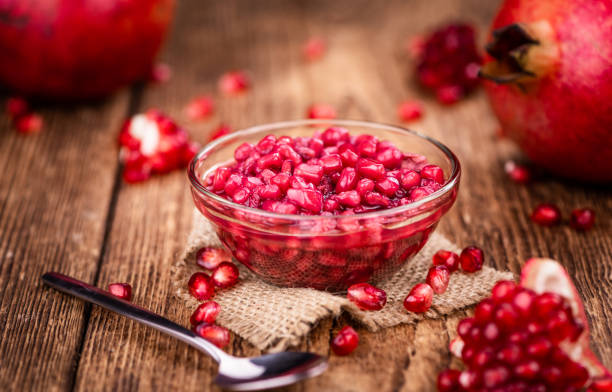Pomegranates are one of the most nutritious and delicious fruits that have been enjoyed for thousands of years. Packed with essential vitamins, minerals, and antioxidants, pomegranates are a must-have fruit in your diet. But have you ever wondered how many calories are in pomegranate seeds? Well, this article will answer that question and give you all the information you need to know about the calorie content of pomegranate seeds.
First of all, it’s important to understand what calories are. Caloric intake refers to the amount of energy that your body gets from the food and drinks you consume. A calorie is a unit of energy that measures the amount of energy that is required to raise the temperature of one kilogram of water by one degree Celsius. The calories in food come from three main sources: carbohydrates, proteins, and fats.
Pomegranate seeds are small and flavorful, but they are also low in calories, making them a great option for those who are trying to maintain a healthy weight. A 100-gram serving of pomegranate seeds contains approximately 83 calories, which is less than half the number of calories found in the same amount of other fruit such as bananas or grapes.
Despite their low calorie content, pomegranate seeds are rich in vitamins, minerals, and other essential nutrients. They are a good source of vitamin C, which helps to boost the immune system and protect the body from illness. Additionally, pomegranate seeds contain high levels of potassium, which is essential for maintaining healthy blood pressure levels, and for supporting proper heart function.
Pomegranate seeds are also rich in antioxidants, including polyphenols and anthocyanins, which help to protect the body from damage caused by free radicals. These compounds also have anti-inflammatory properties, which can help to reduce the risk of chronic diseases such as heart disease, cancer, and diabetes.
Another benefit of pomegranate seeds is their high fiber content. Fiber is an important nutrient that helps to regulate the digestive system and to maintain healthy cholesterol levels. A 100-gram serving of pomegranate seeds contains approximately 4 grams of fiber, which is approximately 16% of the recommended daily intake.
In addition to their high nutritional value, pomegranate seeds are also easy to incorporate into a healthy diet. They can be added to smoothies, salads, or yogurt for a delicious and nutritious snack. They can also be used to top oatmeal or cereal, or to make a tasty sauce to accompany chicken or fish.
When it comes to counting calories, it’s important to keep in mind that not all calories are created equal. Pomegranate seeds are a low-calorie food that is packed with essential nutrients, making them a great option for those who are looking to maintain a healthy weight. Whether you’re trying to lose weight or just maintain a healthy lifestyle, adding pomegranate seeds to your diet is a great way to do so.
In addition to being low in calories, pomegranate seeds are also low in fat. One cup of pomegranate seeds contains less than 1 gram of fat, making them a great snack option for those who are trying to lose weight. The lack of fat in pomegranate seeds also means that they won’t contribute to the risk of heart disease or other chronic health problems.
It’s worth mentioning that pomegranate seeds are also rich in vitamins and minerals. One cup of pomegranate seeds contains about 10% of the daily recommended value of vitamin C, 15% of the daily recommended value of vitamin K, and 8% of the daily recommended value of potassium. These vitamins and minerals play an essential role in maintaining good health and reducing the risk of chronic diseases.
In conclusion, pomegranate seeds are a nutritious and delicious addition to any diet. They are low in calories and high in essential vitamins, minerals, and antioxidants, making them a great option for those who are looking to maintain a healthy weight and improve their overall health. So next time you’re looking for a tasty and nutritious snack, consider adding some pomegranate seeds to your diet!

 Home
Home Health
Health Diet & Nutrition
Diet & Nutrition Living Well
Living Well More
More












